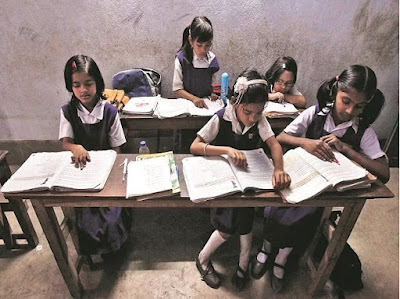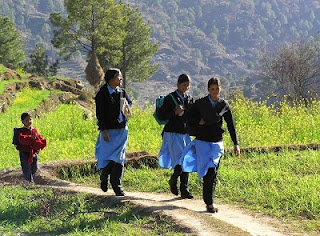Kumauni & Gharwali taught at schools in Uttarakhand Photo: http://www.shaktihimalaya.com/ The government of Uttarakhand has decided to have the two major vernacular languages of the state, Kumauni and Gharwali, taught at all the primary schools. The article " Grads in Kumaoni, Garhwali may be taken as primary, junior school teachers " in the Times of India presents it an an employment opportunity, but it seems much more than that. The article quotes Prof Dr.. S.S. Bisht saying: ""This is very good news for us, as teaching the languages to students from class I will help revive not only the dialects but also their associated cultures," Interestingly now the state is struggling to find enough qualified teachers to implement this: "It will be difficult to meet such a high demand in so short time. However, from this academic year, we have introduced options to study the language as an elective or as a single-subject course to increase the n...





